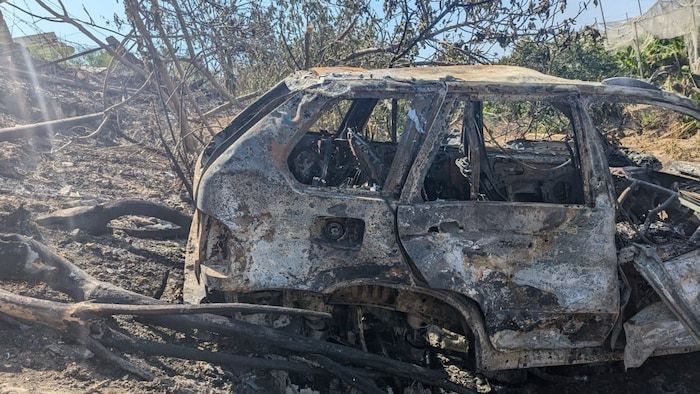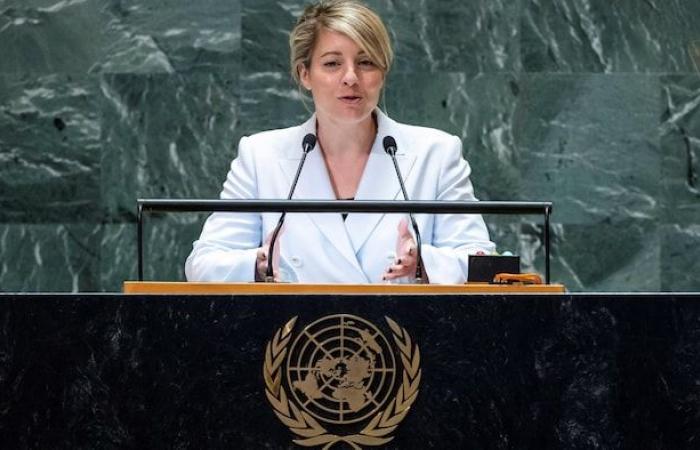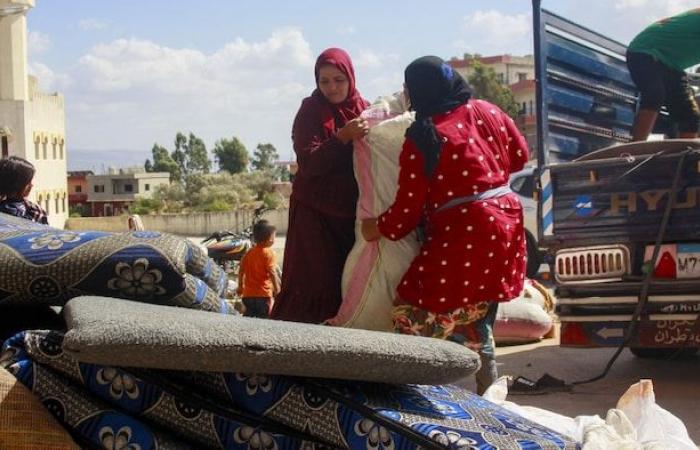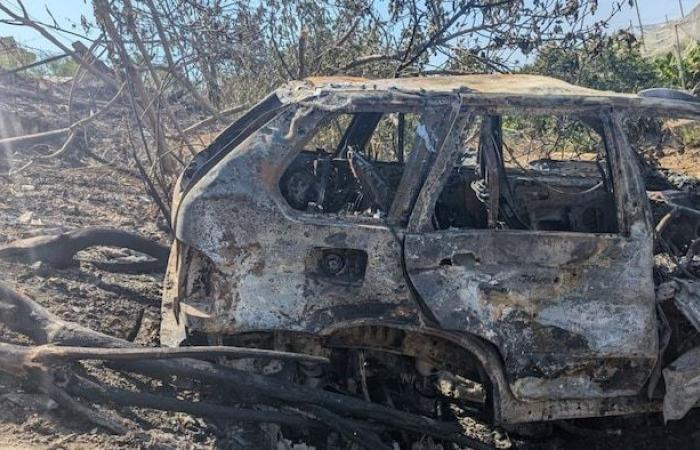Ottawa must do more to help Canadian citizens leave Lebanon, says the son of a Canadian couple killed last week when an Israeli bomb hit their car in the south of the country.
Speaking from Bahrain in a telephone interview, Kamal Tabaja said he has trouble sleeping knowing that other members of his family, including his Canadian brother, are struggling to find a safe way to leave the country .
The Canadians who are still there, they should start evacuating them, by sending planes or boats
said Kamal Tabaja.
The federal government has been working on plans for a possible military evacuation for months, but for now, Global Affairs Canada is urging people to leave on their own while there are still options to do so.
Foreign Affairs Minister Mélanie Joly said some 45,000 Canadians could be in the country, although only about half of them have registered at the embassy in Beirut.
On Friday, the ministry began reserving blocks of seats on commercial flights departing from Beirut to other countries. Canadian passengers are responsible for finding their way back to Canada from these locations.
Open in full screen mode
Canadian Foreign Minister Mélanie Joly addresses the 79th United Nations General Assembly at the UN headquarters in New York, United States, September 30, 2024.
Photo : Reuters / Eduardo Munoz
Ms. Joly declared late Monday afternoon that in order tohelp Canadians leave the country quickly
the government had obtained 800 additional seats for the next three days reserved for Canadians, permanent residents and their immediate families. The next flight would leave Tuesday, she said.
If you are a Canadian citizen in Lebanon, you must leave now. If you are offered a seat, take it now.
Speaking before Ms Joly’s update, Kamal Tabaja said he thought it would be around two weeks before his brother, who lives in Beirut, could get on a flight.
You just have to try to hold on, Mr. Tabaja tells himself when he thinks of his brother. You have to keep fighting. You have to survive until this is all over.
Open in full screen mode
Refugees prepare to leave southern Lebanon.
Photo : Getty Images / AFP / RABIH DAHER
Prime Minister Justin Trudeau was in Inuvik, Northwest Territories, on Monday to mark the National Day for Truth and Reconciliation. Speaking to reporters, he said he had been asked to respond to reports that Israel was preparing for limited ground operations in Lebanon.
He reiterated that he had spoken with the president of Lebanon and that Canada was calling for a ceasefire in that country and in the region.
We know how extremely difficult it is for so many people to watch the upheaval in the region, and Canada continues to work with partners in the region and around the world to press for a ceasefire. fire. We must see an end to violence against civilians
he said.
The Lebanese Health Ministry estimates that Israeli strikes have killed more than a thousand people over the past two weeks in a major escalation of hostilities between Israel and the Hezbollah militant group, who have exchanged fire since the start of the war between Israel and Hamas last October.
Fear of an escalation
While Israel and Hezbollah have vowed to continue their fight, other Western countries have begun to step up exit plans for their citizens, fearing an even wider regional conflict.
Some European states began withdrawing their diplomats and citizens from Lebanon on Monday, with Germany using military aircraft.
Tabaja said Ottawa should do much more, not only to evacuate citizens, but also to condemn the ongoing violence and help prevent more civilians from being harmed.
Global Affairs Canada did not immediately respond to a request for comment.
Ms Joly said an immediate ceasefire was needed and there should be no war in Lebanon.
She said on social media last week that she had spoken to Mr. Tabaja and his brother after the deaths of their parents, 75-year-old father Hussein Tabaja and 70-year-old mother Daad Tabaja.
I condemn the killing of these two innocent people who were fleeing violence during a strike [des Forces de défense israéliennes]wrote Joly. We refuse to let civilians bear the cost of this conflict.
Kamal Tabaja said he called his parents last Monday and encouraged them to flee their village in southern Lebanon in Nabatieh district.
I told them, “This isn’t normal, I think it’s time to leave.” Everyone was stuck in traffic for about six to seven hours […] it was like a bottleneck.
He explained that he and his brother began to worry when, after their last conversation in the evening, midnight came and they had not heard from their parents. They began contacting local hospitals and putting out calls for help on social media, he said.
This is how they learned that a vehicle had been incinerated near the Israeli bombings.
It matched the description of their parents’ vehicle. The license plate matched and his mother’s watch was found in the wreckage.

Open in full screen mode
The remains of Kamal Tabaja’s parents’ vehicle
Photo : (Kamal Tabaja)
Mr Tabaja said his parents’ bodies were officially identified at a hospital on Saturday through blood tests.ADNand that they were buried later that day. No one was able to attend the funeral because most of their family members in Lebanon were displaced by the conflict, he lamented.
The family immigrated to Canada in the late 1980s to escape the Lebanese civil war, he said. They were initially denied permanent residency and returned to Lebanon for a time, but later returned as refugees and were able to obtain citizenship.
They lived in Ottawa. Eventually, they returned to Lebanon to help his sick maternal grandparents, but they returned often to visit him.
Mr Tabaja said he was in a complete denial
regarding the death of his parents and that he wanted them to be remembered as loving and generous people
.
They loved the outdoors, he said, and spending time with their family. I have many memories of my father and mother in parks, rivers, lakes, in Lebanon and Canada. I cherish all these images in my mind. They were happy people.
For Mr. Tabaja, the end of the violence cannot come soon enough. He said he received an outpouring of support from around the world after his parents’ deaths.
People loved them, he recalled. Wherever they went, they left a trace.








